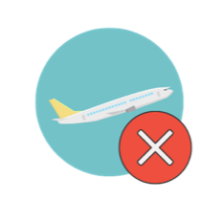A funny thing happened on our march to the future – we all had to become writers. We text, we blog, we post on Twitter and Facebook, and – most important for work – we email. There are 100 billion business emails transmitted every day on the Internet. This is expected to increase to 132 billion next year. That is a staggering amount of email- writing going on!
If you think about how much of this activity is aimed at making a sale or closing a deal, then you realize how much of our bottom line these days actually depends on our ability to put words together. Our best-selling add-on G Merge will allow you to write emails and save them as templates that you can use over and over again – all without leaving your spreadsheet.
To help you write these great emails that you want to use all the time – and hopefully increase the amount of money you are making – we decided to look to people who have succeeded in making a living out of their writing talents. Here are writing tips from some of the world’s most successful authors, and how we can apply these tips to writing emails that work.
1. “Hold the reader’s attention.” Remember this advice from Margaret Atwood as you think of your subject line, those first few words that have a big impact on whether or not your email gets opened. You can use a writer’s technique by being funny or creating intrigue. You can also be informative, or you can create an offer. The most important thing is that you give your reader a reason to open your email.
2. “Great is the art of beginning…,” said Longfellow. We’re great believers in a good opening sentence to start things off. You don’t want to come across as being too forward or too abrupt, but you don’t want to be too long-winded either. “I hope you are well” or “It was great to see you at xx” can work just fine.
3. “First, find out what your hero wants, then just follow him!” This tip from Ray Bradbury is our absolute favorite advice for people working in sales and marketing. Never start your business letters by talking about yourself or your company. Your “hero” is the person you are writing to, your customer. Figure out what he wants, and strive to talk about how you can give him that.
4. Kurt Vonnegut said, “Write to please just one person,” and we thank him for reminding us of the importance of having a clear buyer persona. Before you sit down to write your email, do your homework and determine who your customer is. When you have succeeded in doing that, write your email with him in mind.
5. “Clear, brief, and bold,” are what E.B. White and William Strunk, Jr. wanted our writing to be. A 200-word limit is reasonable for an email, as very few people would care to read anything longer. Keeping a tight watch on your word count will also force you to follow more of Strunk and White’s rules, namely, to omit needless words, and to use definite, specific, concrete language.
 6. “Never use a foreign phrase, a scientific word, or a jargon word if you can think of an everyday English equivalent.” This one comes from George Orwell. As you write your email, remember that you are there to communicate, so make sure that you do. Unless you are doing B2B marketing, stay away from words that only people in your industry will understand. The natural antidote to this tendency is to regularly read general-interest topics. Subscribe to The Washington Post, Time Magazine, even BuzzFeed. To hammer home the point, let’s quote another literary great. The king of cool Jack Kerouac once said, “One day I will find the right words, and they will be simple.”
6. “Never use a foreign phrase, a scientific word, or a jargon word if you can think of an everyday English equivalent.” This one comes from George Orwell. As you write your email, remember that you are there to communicate, so make sure that you do. Unless you are doing B2B marketing, stay away from words that only people in your industry will understand. The natural antidote to this tendency is to regularly read general-interest topics. Subscribe to The Washington Post, Time Magazine, even BuzzFeed. To hammer home the point, let’s quote another literary great. The king of cool Jack Kerouac once said, “One day I will find the right words, and they will be simple.”
7. “Easy reading is damn hard writing,” went Nathaniel Hawthorne. In other words, work on it. Remember that future deals will be made on the words you are typing out, so take at least 30 minutes to write and rewrite them. If you are a slow writer, take an hour. Check your dates and places, the names and titles, and the spelling and grammar. Just to be sure, have somebody else go over your email before you hit Send.
 Wizy.io’s customer success director Apol Massebieau has been a newspaper journalist, magazine editor, TV show host/producer, essay and fiction writer, and toy designer. She was an early adopter of Etsy and continues being fascinated by how small businesses thrive online.
Wizy.io’s customer success director Apol Massebieau has been a newspaper journalist, magazine editor, TV show host/producer, essay and fiction writer, and toy designer. She was an early adopter of Etsy and continues being fascinated by how small businesses thrive online.
Also published on Medium.






Leave a Reply